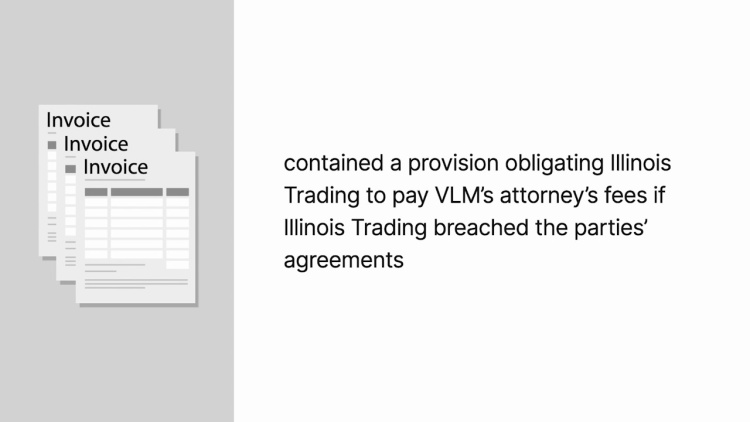VLM Food Trading International, Inc. v. Illinois Trading Co.
United States Court of Appeals for the Seventh Circuit
811 F.3d 247 (2016)
- Written by Rose VanHofwegen, JD
Facts
American reseller Illinois Trading Co. (defendant) bought potatoes from Canadian supplier VLM Food Trading International, Inc. (plaintiff). Each transaction occurred the same way. First, Illinois sent VLM a purchase order specifying the product, quantity, and price. Second, VLM responded with an e-mail confirming those terms. Third, VLM shipped, and Illinois accepted the order. Fourth, VLM mailed a trailing invoice after the sale. An attorney fee-shifting provision appeared only in VLM’s trailing invoices. Illinois’s bookkeeper saw it, but the parties never discussed it during contract negotiations. When Illinois failed to pay for shipments, VLM sued to recover the amounts owed plus its attorneys’ fees. Illinois contested the claim for attorneys’ fees, arguing that the contract did not include a fee-shifting provision. The trial court mistakenly applied the Illinois Uniform Commercial Code (UCC) instead of the Convention on Contracts for the International Sale of Goods (Convention) and found the parties’ agreement included fee-shifting as standard industry practice. After Illinois appealed, the trial court found on remand that the agreement did not include fee-shifting and refused to award VLM attorneys’ fees. VLM appealed.
Rule of Law
Issue
Holding and Reasoning (Sykes, J.)
What to do next…
Here's why 907,000 law students have relied on our case briefs:
- Written by law professors and practitioners, not other law students. 47,100 briefs, keyed to 996 casebooks. Top-notch customer support.
- The right amount of information, includes the facts, issues, rule of law, holding and reasoning, and any concurrences and dissents.
- Access in your classes, works on your mobile and tablet. Massive library of related video lessons and high quality multiple-choice questions.
- Easy to use, uniform format for every case brief. Written in plain English, not in legalese. Our briefs summarize and simplify; they don’t just repeat the court’s language.





